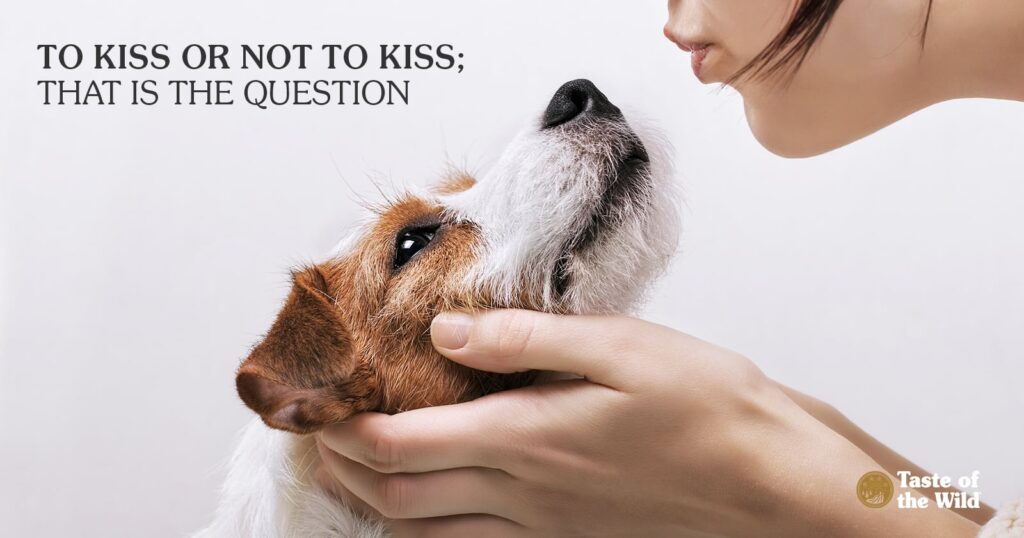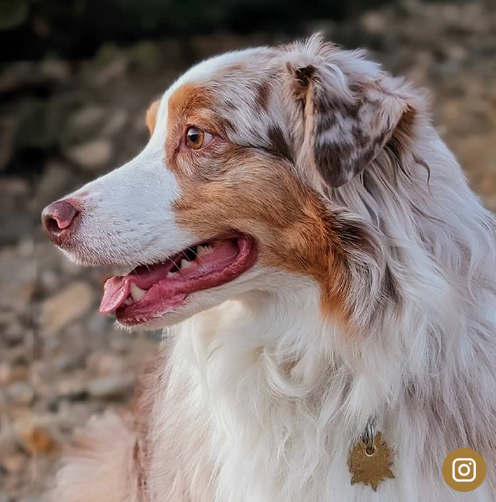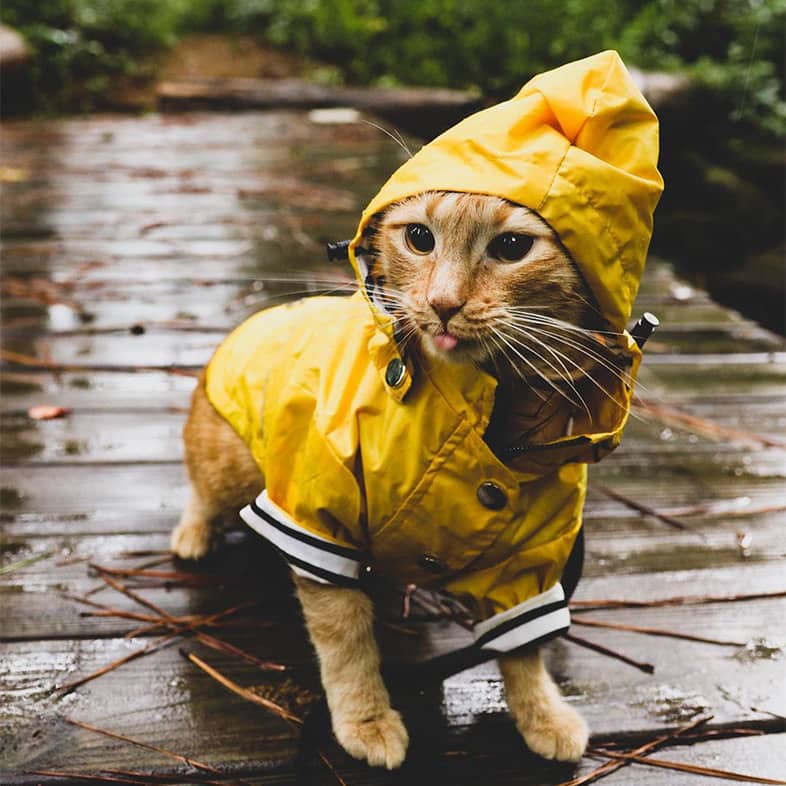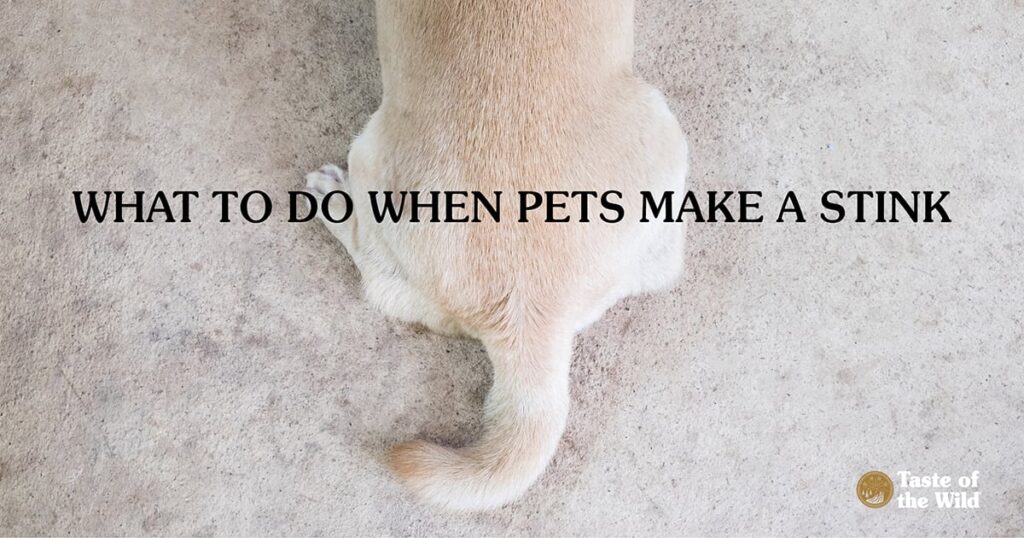
A kiss is a kiss… or is it? Are “licks” from dogs the same as kisses? And are there any health dangers to you from dog kisses?
Dog Kisses Can Be Signs of Affection…But Probably Not
Dog licks can have many purposes and meanings. Researchers who study wolves, coyotes and other wild canine ancestors believe that pups lick the mother’s muzzle after a hunt to compel her to regurgitate a little prey. Some dogs lick the faces of other dogs, possibly to detect if they’ve sampled any treats or as a welcoming gesture.
Dogs lick you because they like the taste of the salt or other signature flavors on your skin that make you, well, you. If dogs lick you on the mouth or lips and you praise them and deliver a kiss in return, you might encourage your pet to offer even more dog kisses.
Of course, when you’re bestowed a dog lick that is accompanied by a sweeping tail wag or a snuggle on the couch, it’s quite possible it’s out of pure affection.
Do Dog Kisses Come From a Clean Mouth or a Potty Mouth?
Have you ever heard that a dog’s mouth is cleaner than a human’s? If so, consider this: Many dogs think the litter box is an open snack bar, and dogs and cats are especially fond of gnawing on decaying vermin. They clean their nether parts with their tongues. And chances are, they’re not getting their teeth cleaned nearly as often as you are. Are pets’ mouths cleaner than humans’? Suffice it to say that the “cleaner mouths” legend simply isn’t true.
Dog Owners Could Contract Disease by Letting Dogs Lick People
In fact, pets can swap more than spit with you because their saliva can contain bacteria, yeast, viruses and parasites that can pose a risk to humans. Bacteria such as Salmonella spp., Clostridium spp., E. coli and Campylobacter spp. can cause gastrointestinal symptoms in people. And Pasteurella spp., a type of bacteria commonly found in the mouths of healthy cats and some dogs, can lead to widespread infections in humans.
Pets can even transmit parasites such as roundworms, hookworms and Giardia spp. through a kiss, although it’s not very common.
While these organisms aren’t usually absorbed through the skin if a dog licks your arm or leg, some are more easily transmitted through open wounds in the skin or the mucous membranes of the mouth, nose or eyes. The overall risks of catching something serious from kissing your pet is relatively low, but it’s best for immune-compromised people to avoid letting a dog lick hit their lips.
A Dog Lick Might Lead to Something Worse, Like a Bite
Care should also be taken when allowing young children to show affection toward pets. According to the Centers for Disease Control and Prevention, children 5 to 9 years of age are at greatest risk for dog bite injuries. Some pets, like people, may not appreciate being hugged or may be fearful of sudden movements around their face or head, and they may resort to biting as a way to get people to back away from them.
Better V-Day Gifts Than Dog Licking
Still, few pet owners will begrudge their pets some type of licking behavior on Valentine’s Day. Chances are, your dog may appreciate a new squeaky chew toy or catnip mouse even more than a smack on the lips. Offer a sign of affection that doesn’t encourage excessive licking!
Is It OK to Kiss Your Dog?
Sure, you can kiss your dog. Do dogs like kisses? It’s hard to say for sure, but dogs tend to understand that you’re offering affection. But letting your dog lick back, especially on your face or near your mouth, can be detrimental for both human health and pet health. As hard as it is, do what you can to discourage dog kisses and even puppy kisses. If you’re having trouble stopping your dog’s licking, it might be a good idea to consult a dog trainer. If you aren’t sure if your dog has a healthy mouth, consult your veterinarian.


